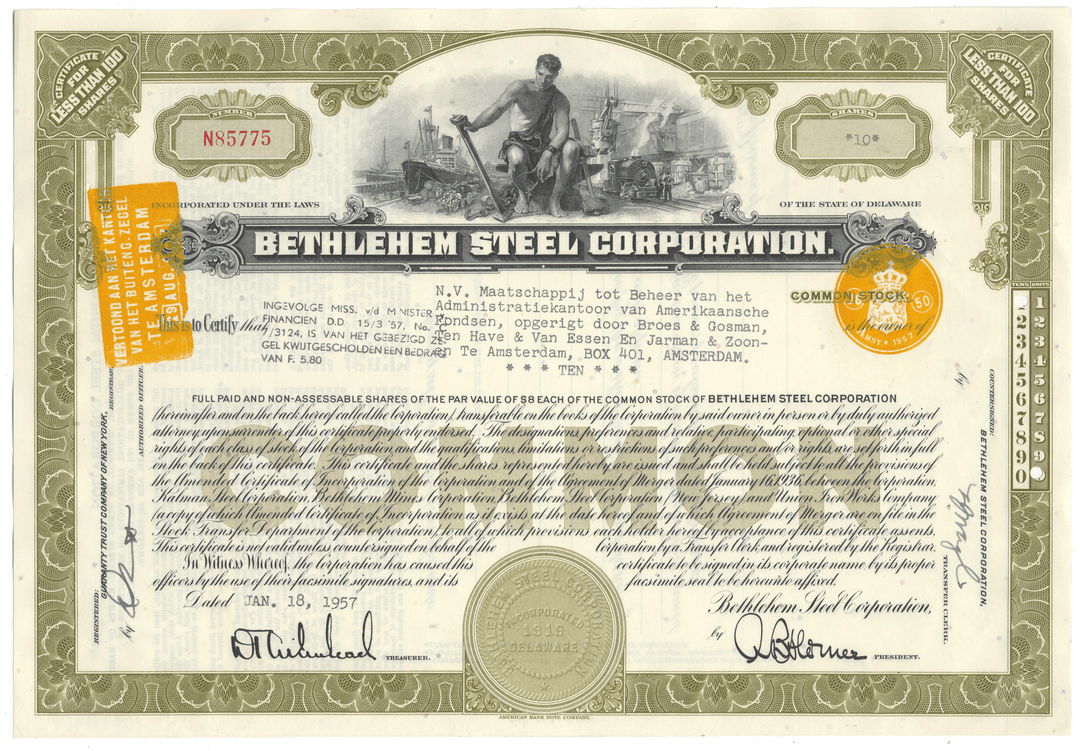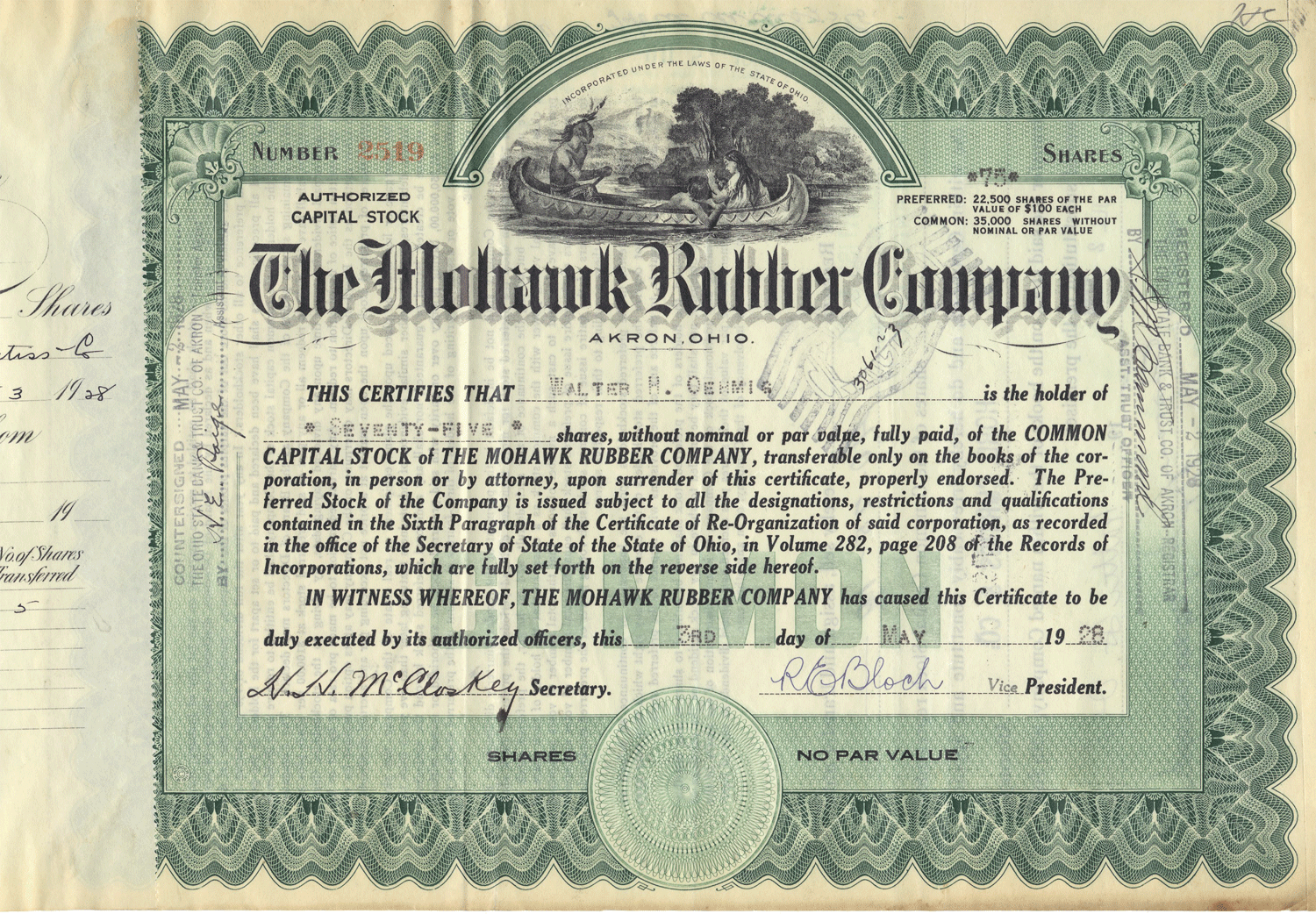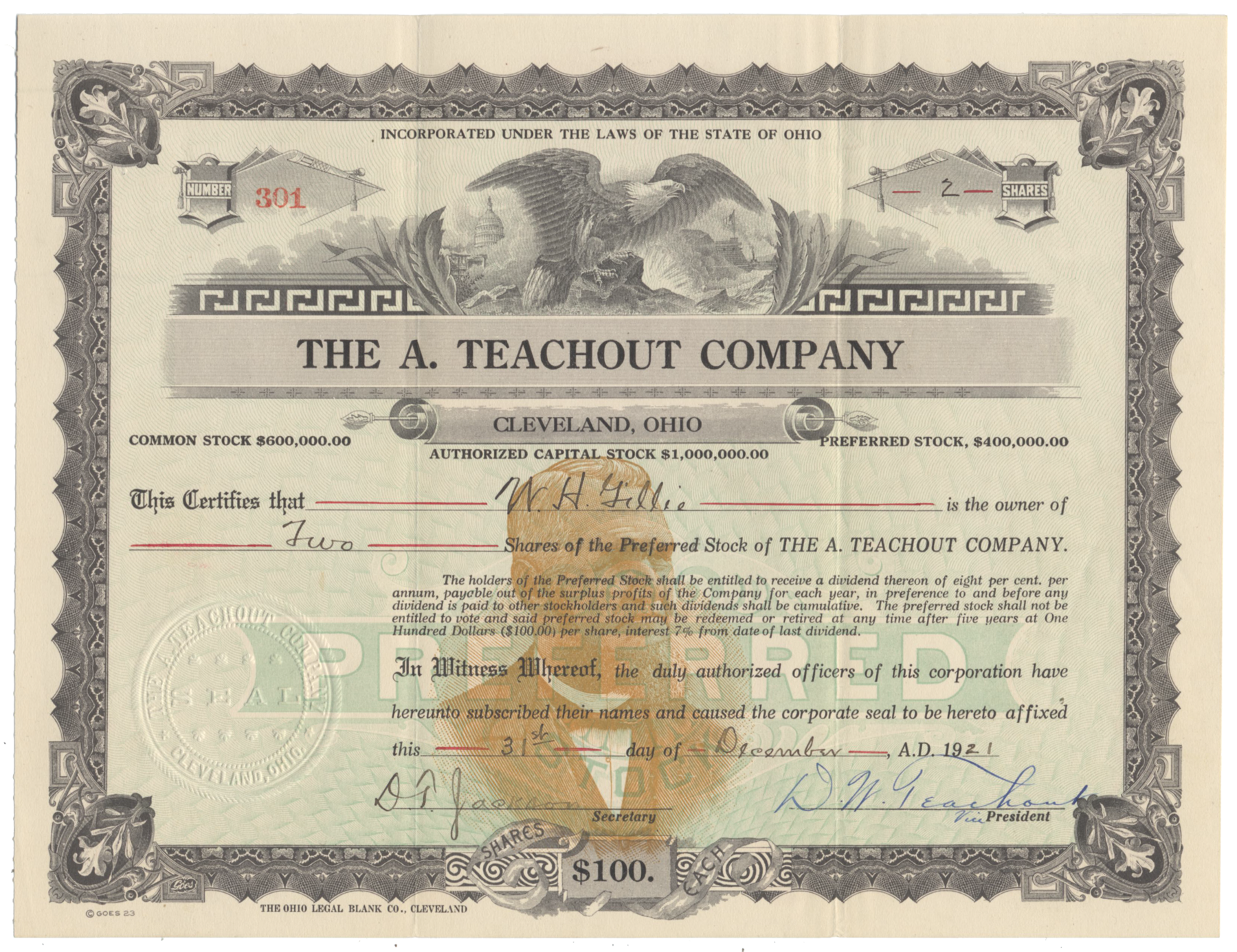
Bethlehem Steel Corporation
- Guaranteed authentic document
- Orders over $50 ship FREE to U. S. addresses
Product Details




Certificate Type
Common Stock
Date Issued
January 18, 1957
Canceled
Yes
Printer
American Bank Note Company
Signatures
Machine printed
Approximate Size
12" (w) by 8" (h)
Additional Details
NA
Historical Context

The Bethlehem Steel Corporation was formed in 1904 to consolidate Bethlehem Steel Company (of Pennsylvania), the Union Iron Works (with shipbuilding facilities in San Francisco), and a few other smaller companies.
The company’s history traces to 1857, when a group of railroaders and investors of the city of Bethlehem, Pennsylvania, founded the Saucona Iron Company, which four years later was renamed Bethlehem Iron Company; the works was designed principally to turn out wrought-iron railroad rails. In 1899 the facilities were acquired by a newly formed enterprise, the Bethlehem Steel Company.
The major founder of the corporation was Charles M. Schwab, who had earlier been one of the major figures in the creation of United States Steel Corporation (1901). In August 1901 he had bought control of Bethlehem Steel Company, only to see it fail in a financial scandal. Schwab borrowed and invested heavily to save the company’s assets, absorb other companies, and launch the Bethlehem Steel Corporation. The corporation thrived, partly as a result of the expanding orders for guns, munitions, and naval vessels from European powers both before and during World War I. In the first four decades of its existence, the corporation absorbed a number of iron-ore, coal, and steel-producing properties from coast to coast. During World War II and the postwar years, it continued to expand.
Like other American steel companies, Bethlehem began to diversify during the 1970s in the face of strong competition from foreign steelmakers. Its other activities included the production of plastics and related chemical products and the mining of nonferrous ores. Despite its attempt to diversify, Bethlehem Steel was ultimately brought down by a variety of factors, including low-cost foreign competition and the loss of millions of dollars in a lawsuit.
In 2001 the corporation filed for bankruptcy protection, and two years later it—along with more than 20 of its subsidiaries, including Bethlehem Rail, Greenwood Mining, and Chicago Cold Rolling—was dissolved and its assets sold.
Related Collections
Additional Information
Certificates carry no value on any of today's financial indexes and no transfer of ownership is implied. All items offered are collectible in nature only. So, you can frame them, but you can't cash them in!
All of our pieces are original - we do not sell reproductions. If you ever find out that one of our pieces is not authentic, you may return it for a full refund of the purchase price and any associated shipping charges.





